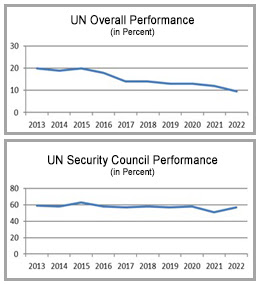Aitit,southern Lebanon/Lebanon:1/6/2017: flags of Hezbollah with the sun shine reflection During a military salute For the funeral © crop media / shutterstock.com
Western media
habitually label Hamas, the Houthis, and Hezbollah as Iran’s proxies. One could
just as reasonably consider European countries proxies of the US. Such a blind
approach only serves to further erode the media’s credibility. A more accurate
description for these groups would be “allies” or “partners” of Iran.
William Randolph Hearst, who built
the United States' largest media conglomerate, famously declared, "You
furnish the pictures and I'll furnish the war." Hearst pioneered yellow
journalism, a style characterized by its extensive use of bold headlines and
exaggerated narratives, often rooted in speculation and dubious information.
Sensationalism plagues the American media. The dramatization of news stories to attract a wider audience and generate revenue is a persistent trend. The media habitually deploy misleading information, propaganda and unverified rumors.
This penchant for sensationalized reporting has become so ingrained that even some formally independent media outlets can be drawn into this vortex. Fair Observer purports to champion balanced and truthful reporting. However, during the recent coverage of escalating tensions between the United States and Iran, this author noted with surprise the editorial oversight that allowed contributors to refer to Iran's allies and partners as proxies.
The terms “proxy,” “ally” and “partner” all describe relationships between actors on the international stage, but they are not synonyms. A proxy is an entity acting on behalf of another, often with a degree of subordination. In legal contexts, a proxy typically grants the designated individual general discretion throughout the matter at hand.
An ally, by contrast, is a party that provides assistance or support in a shared endeavor. Formalized agreements between states for wartime support are what alliances often become in the legal realm. In the context of Iran's Axis of Resistance, this can include non-state actors as well.
Finally, a partner refers to an entity associated with another for the joint execution of an activity that offers mutual benefit. In legal terms, a partnership is an agreement between two or more parties to engage in mutually advantageous projects.
Iran's Axis of Resistance comprises entities such as the Houthis, Hamas and Hezbollah. These groups should not be categorized as Iranian proxies, but rather as allies or partners. (While their alliances with Iran may lack formal agreements, their actions demonstrate a level of cooperation.) Most importantly, each group retains its own decision-making authority. The Houthis pursue independent governance in Yemen. Similarly, Hamas, a Sunni group, has a history of conflict against Iranian-backed forces in Syria to overthrow Syrian President Assad. Hezbollah receives financial and military aid from Iran, yet it maintains its independent decision-making capacity.
Iran firmly bases its policy on
ethical grounds when it supports the restoration of Palestinian control over
Palestine. Analogous to the shared democratic values
purportedly uniting the US and the EU, Iran and its allies share a
common goal: the cessation of Palestinian
occupation and the facilitation of a coexistence of Palestinian Christians,
Jews and Muslims without unequal Jewish power.
The era of colonialism has
concluded. Should the Western coalition, led by the US, seek to dismantle
Iran’s Axis of Resistance, they must stop colonizing Palestine, thereby letting
Palestinians to govern their own territory. Failing this, the resistance will
grow stronger and force the West to retreat in disgrace, as seen in Vietnam and
Afghanistan.
The proxy narrative is a misconception in Middle Eastern politics
The ongoing
conflict between Israel, backed by the US, and the Palestinians in Gaza has
garnered global attention since the October 7 attacks by Hamas on Israel. While
not directly implicated in the October 7 assault, Iran's allies or partners in
Lebanon, Iraq, Palestine, Syria, Yemen and other nations have aligned
themselves with Hamas in the aftermath of the incident. The adversarial stance
of the United States and its media towards Iran often unjustly characterizes
these entities as Iran’s proxies. That is just another lie to instill public anger against
Iran.
In a report spanning 20 pages, Michael Knights of the Washington Institute for Near
East Policy asserted that Iran typically refrains from imposing its will on
groups such as the Houthis, allowing them autonomy in their decision-making
processes. Knights contends that the Houthis are neither direct proxies of Iran
nor opportunistic wartime allies. They align with Iran based on shared
ideological beliefs rather than coercion. Abdul-Malik al-Houthi, the leader of
the Houthi movement, considers himself equal to Iran's
supreme leader.
The Council on
Foreign Relations’ study too found that mutual consent, not
proxy servitude, forms the basis of Iran’s associations, which further debunks
the notion of Iran’s dominance over its partners.
The persistence of Palestinian resistance
The Houthis, Zaidi Shia Arabs known
for their robust determination and autonomous disposition, remained unsubdued
by British dominion over Yemen for 129 years. The are combatants who resist
oppression, something evident in their solidarity with the oppressed
Palestinians in Gaza. Although, like Iranians, they are Shia Muslims, Iranians
are predominantly Twelver Shias. The two sects diverged in the 7th century, and
so are separated by more historical distance than Catholics are from
Protestants or Orthodox Christians.
Currently, the
Houthis are attracting attention for their strategic blockade of the Bab
al-Mandab strait in the Gulf of Aden, aimed at Israel and its allies, including
the United States and the United Kingdom. Their actions are underpinned by a
principled stance, conditioning the lifting of Israel's internationally condemned blockade of Gaza as a precondition for
de-escalation.
Since 2007, Hamas has effectively
governed Gaza following the 2006 parliamentary elections, catalyzed by US
President George W. Bush's endorsement of
Palestinian electoral processes To the US’ surprise, Hamas won the election in
Gaza. Instead of endorsing it, the US opted to finance
and endorse violence against Hamas, instigating internal conflict among
Palestinians. Subsequently, Hamas consolidated control over Gaza in 2007.
Despite Israel's awareness of Hamas
as a resistance movement aspiring to reclaim Palestine, it seized upon Hamas'
ascension to perpetuate Palestinian disunity and thwart the establishment of a
Palestinian state. Under Benjamin Netanyahu's leadership, Israel supported Hamas to
prevent the realization of a Palestinian state. In return, Hamas purportedly endorsed a
Palestinian state alongside the state of Israel, notwithstanding its status as
a resistance entity.
Lacking progress on the two-state
paradigm, hostilities naturally escalated between Hamas and Israel. Despite
agreeing to a ceasefire and lifting the blockade in 2008, Israel broke the
agreement, launching a ground invasion and aerial bombardment of Gaza,
subsequently reinstating the blockade. Since then, Israel has invaded and
bombed Gaza. The October 7 assaults represented Hamas' desperate bid for
liberation from Israeli subjugation. Predictably, Israel's responses have been
disproportionately forceful, seeming even genocidal to observers in many
corners of the globe. However, US media persists in hiding the truth, perpetuating Israel's
customary falsehoods and propaganda.
Iran’s allies share a common
objective with Iran: the liberation of Palestine from prolonged oppression
under Western colonization. This aggression has perpetuated regional
instability, engendering numerous casualties and extensive devastation.
A wake-up call for transparency
Israel has committed atrocities that lay bare a disturbing reality: Media conglomerates are complicit in perpetuating a narrative that shields Israel from accountability, serving as an extension of US policy. Chief among these entities is The New York Times, which actively disseminates falsehoods and propaganda to obfuscate the crimes committed by both the United States and Israel.
We must recognize that the deep state influences the US government and its affiliated media conglomerates, making them untrustworthy as information sources. Therefore, individuals should cross-reference information from these sources with independent media outlets and alternative sources to verify their truthfulness.
Independent media like Fair
Observer must vigilantly avoid falling into the deceptive narratives that
mainstream conglomerates
perpetuate. They must conduct rigorous independent research to maintain the
accuracy and integrity of their reporting. Accountability is a moral
imperative. And even if we do not hold ourselves accountable in this life, we
all will be accountable before
God.
BY MEHDI ALAVI
The
article was originally published by Fair
Observer on April 23, 2024.























